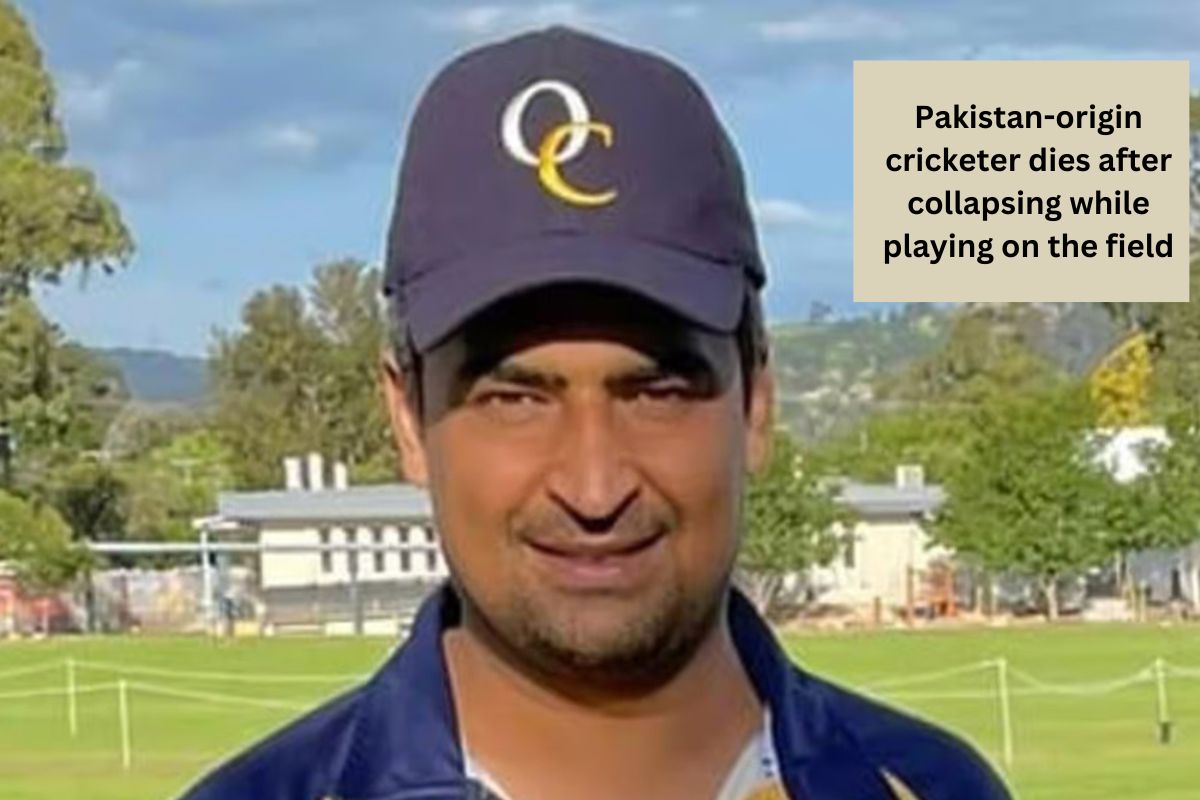Introduction
The cricket community is mourning the tragic death of Pakistani-origin club cricketer Junaid Zafar Khan, who collapsed and fell unconscious during a match in Adelaide, Australia. The unfortunate incident occurred amid extreme heat, raising concerns about the safety of players.
Who was Junaid Zafar Khan?
Junaid Zafar Khan was a dedicated cricketer who moved to Adelaide from Pakistan in 2013 to pursue a career in the IT industry. Passionate about the game, he played for Old Concordians Cricket Club and actively participated in local cricket tournaments.
Details of the incident
Khan was playing for Old Concordians Cricket Club against Prince Alfred Old Collegians when he suddenly fell unconscious at around 4 pm Australian Central Daylight Time (ACDT). He fielded for 40 overs and batted for seven overs before he suffered a medical emergency. Despite the best efforts of paramedics, he could not be saved.
Effect of extreme heat on players
At the time of the match, the temperature was above 40 degrees Celsius. According to the Bureau of Meteorology, South Australia was experiencing a blistering heatwave, which likely contributed to the tragic incident. According to the Adelaide Turf Cricket Association guidelines, play should be cancelled if the temperature exceeds 42 degrees Celsius, but the match continued as it had not yet reached that limit.
Reaction from the cricket world
The news of Khan’s demise left the cricket community deeply saddened. His club offered its condolences, and many in the cricket fraternity called for stricter safety protocols to prevent such incidents in the future.
Dangers of playing in extreme heat
Participating in sports in extreme heat can lead to serious health risks, including:
- Dehydration and exhaustion
- Heatstroke, which can be life-threatening
- Increased cardiovascular stress
There have been several cases in the past where athletes suffered serious health complications due to prolonged exposure to extreme temperatures.
Ensuring player safety in hot weather
To protect players from extreme heat, sports organisations should implement the following:
- Regular hydration breaks
- Mandatory cooling-off periods
- Revised match cancellation policies based on lower temperature thresholds
- Pre-match medical check-ups for players
Medical emergencies in cricket
Instances of sudden fainting during matches have occurred before, highlighting the need for immediate medical assistance. Ensuring access to trained medical personnel, defibrillators and emergency treatment facilities can be life-saving in such situations.
Impact on family and friends
Khan’s sudden demise has left his family, friends and teammates in deep grief. Both the Pakistani and Australian cricket communities have shown immense support towards him, expressed condolences and respected his contribution to the sport.
Role of Pakistani community in Australian cricket
Players of Pakistani origin have made significant contributions to Australian cricket. Khan was among those who nurtured their love for the sport and played an integral role in the local cricket scene.
Lessons from this tragic incident
This incident underlines the need to enhance safety measures in sports. Cricket bodies must take proactive steps to protect players from extreme situations and prevent such tragedies in the future.
Conclusion
The untimely demise of Junaid Zafar Khan is a huge loss to the cricket world. His passion for the game and dedication to his team will always be missed. Implementing strong safety measures can help prevent such incidents and protect athletes from dangerous playing conditions.
FAQs
- What caused Junaid Zafar Khan to faint?
Khan suffered a medical emergency while playing in extreme heat, although the exact cause is not officially known.
- What were the weather conditions like at the time of the match?
Temperatures topped 40 degrees Celsius, with South Australia experiencing a heatwave.
- How did the cricket community react to his passing?
The Old Concordians Cricket Club and the wider cricket fraternity expressed their grief and offered condolences to his family.
- What are the risks of playing in extreme heat?
Health risks include dehydration, heat exhaustion, heatstroke and increased strain on the heart, all of which can be life-threatening.
- How can similar tragedies be prevented?
Prevention measures include hydration breaks, cooling-off periods, lowering temperature limits when matches are cancelled, and ensuring on-site medical assistance.










